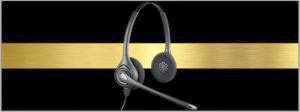Taken from Dispatch Monthly Magazine, Volume 20.5
Written by Gary Allen, Editor of Dispatch Monthly Magazine
You may recall the "good old days" when communications centers had the luxury of simply answering the telephone and radioing information to field units. Then along came cellular phones, and it hasn't been the same since. The public safety communications industry has been on a faster and faster treadmill, trying to catch up with all the technology being invented. It hasn't been easy.
Before the nation's comm centers could equip themselves with Phase II gear for cellular 911, along comes VoIP telephony. And then New York City's mayor Bloomberg announced he wants a 911 system capable of handling text, photos and video.
I'm certainly happy that APCO and NENA are tackling the high-level, legislative and funding issues related to rolling out all this technology. There's enough Washington (DC) activity to keep both organizations busy every day. But back home, where the 911 calls are being answered, there is still work to be done.
Lately, the news is swarming with stories from all points of the country about delayed response times, missed incidents and other human errors leading to injury and death. Perhaps it's just the law of averages that these incidents are appearing now. But it certainly deserves a look.
The challenge of a comm center, after hiring the right people and training them adequately, is to establish a set of procedures and policies that maximize the public's safety. First, you must recognize those situations that require a procedure and policy, so that when it occurs the dispatchers will handle it as the agency requires. Second, within each situation you must recognize every possibility, so that no odd occurence will not be handled ad hoc. Lastly, you must be supervising and auditing the performance of the dispatchers to insure that all of procedures and policies are being followed.
Several recent incidents seem to be focused on the very narrow portion of dispatching related to a dispatcher's discretion when handling telephone calls: the calltaker decides that the call was made accidentally, that the caller doesn't have an emergency, and then doesn't send anyone to investigate. Many of these calls were made from cellular phones. These situations should be an area of particular focus for managers and directors to insure the center's procedures provide enough guidance for their employees to successfully handle these types of calls.
I look forward to seeing negative stories disappear from the news radar screens, and to the resulting lawsuits. But it's going to take some work at individual centers before that will happen.

No comments:
Post a Comment